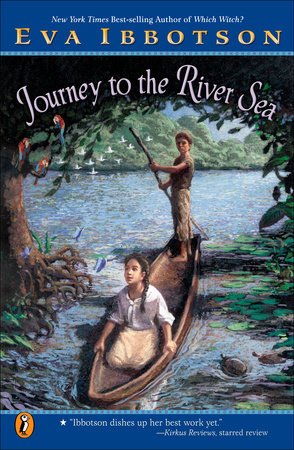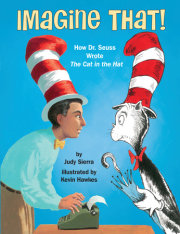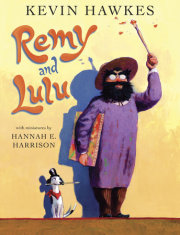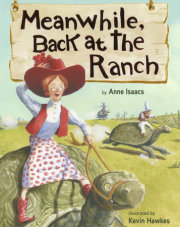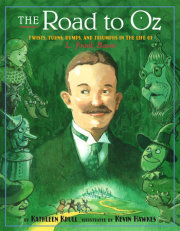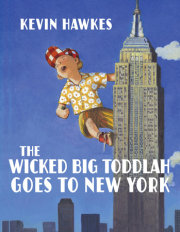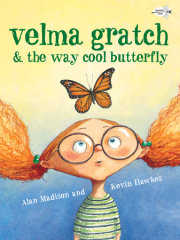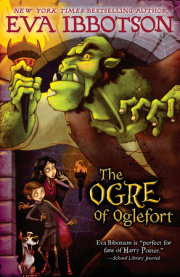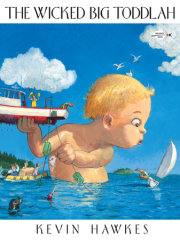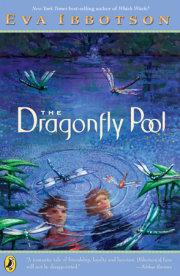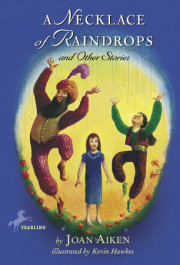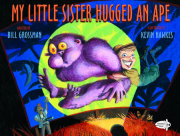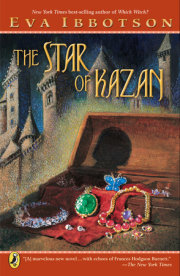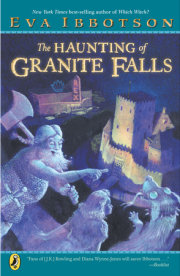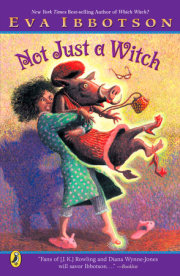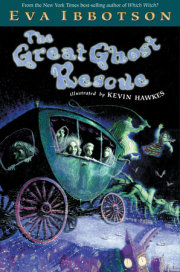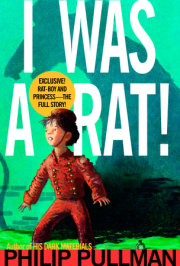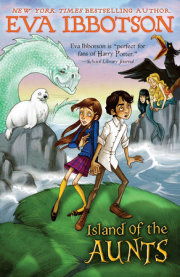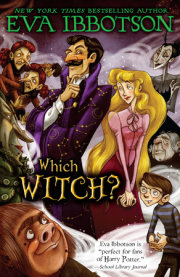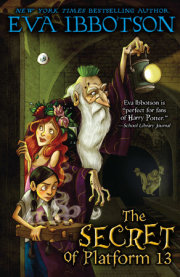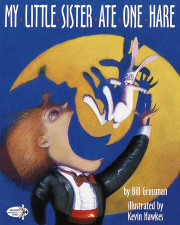It was a good school, one of the best in London.
Miss Banks and her sister Emily believed that girls should be taught as thoroughly and as carefully as boys. They had bought three houses in a quiet square, a pleasant place with plane trees and well-behaved pigeons, and put up a brass plate saying: THE MAYFAIR ACADEMY FOR YOUNG LADIES—and they had prospered.
For while the sisters prized proper learning, they also prized good manners, thoughtfulness, and care for others, and the girls learned both algebra and needlework. Moreover, they took in children whose parents were abroad and needed somewhere to spend the holidays. Now, some thirty years later, in the autumn of 1910, the school had a waiting list, and those girls who went there knew how lucky they were.
All the same, there were times when they were very bored.
Miss Carlisle was giving a geography lesson in the big classroom which faced the street. She was a good teacher, but even the best teachers have trouble making the rivers of southern England seem unusual and exciting.
“Now, can anyone tell me the exact source of the River Thames?” she asked.
She passed her eyes along the rows of desks, missed the plump Hermione, the worried-looking Daisy—and stopped by a girl in the front row.
“Don’t chew the end of your pigtail,” she was about to say, but she did not say it. For it was a day when this particular girl had a right to chew the curved ends of her single heavy braid of hair. Maia had seen the motor stop outside the door, had seen old Mr. Murray in his velvet-collared coat go into the house. Mr. Murray was Maia’s guardian, and today, as everyone knew, he was bringing news about her future.
Maia raised her eyes to Miss Carlisle and struggled to concentrate. In the room full of fair and light brown heads, she stood out, with her pale triangular face, her widely spaced dark eyes. Her ears, laid bare by the heavy rope of black hair, gave her an unprotected look.
“The Thames rises in the Cotswold hills,” she began in her low, clear voice. “In a small hamlet.” Only what small hamlet? She had no idea.
The door opened. Twenty heads turned.
“Would Maia Fielding come to Miss Banks’s room, please?” said the maid.
Maia rose to her feet. Fear is the cause of all evil, she told herself, but she was afraid. Afraid of the future . . . afraid of the unknown. Afraid in the way of someone who is alone in the world.
Miss Banks was sitting behind her desk; her sister, Miss Emily, stood beside her. Mr. Murray was in a leather chair by a table, rustling papers. Mr. Murray was Maia’s guardian, but he was also a lawyer and never forgot it. Things had to be done carefully and slowly and written down.
Maia looked round at the assembled faces. They looked cheerful, but that could mean anything, and she bent down to pat Miss Banks’s spaniel, finding comfort in the feel of his round, warm head.
“Well, Maia, we have good news,” said Miss Banks, a woman now in her sixties, frightening to many and with an amazing bust which would have done splendidly on the prow of a sailing ship. She smiled at the girl standing in front of her, a clever child and a brave one, who had fought hard to overcome the devastating blow of her parents’ death in a train crash in Egypt two years earlier. The staff knew how Maia had wept night after night under her pillow, trying not to wake her friends. If good fortune was to come her way, there was no one who deserved it more.
“We have found your relatives,” Miss Banks went on.
“And will they . . .” Maia began but she could not finish.
Mr. Murray now took over. “They are willing to give you a home.”
Maia took a deep breath. A home. She had spent her holidays for the past two years at the school. Everyone was friendly and kind, but a home . . .
“Not only that,” said Miss Emily, “but it turns out that the Carters have twin daughters about your age.” She smiled broadly and nodded as though she herself had arranged the birth of twins for Maia’s benefit.
Mr. Murray patted a large folder on his knee. “As you know, we have been searching for a long time for anyone related to your late father. We knew that there was a second cousin, a Mr. Clifford Carter, but all efforts to trace him failed until two months ago, when we heard that he had emigrated six years earlier. He had left England with his family.”
“So where is he now?” Maia asked.
There was a moment of silence. It was as though the good news had now run out, and Mr. Murray looked solemn and cleared his throat.
“He is living—the Carters are living—on the Amazon.”
“In South America. In Brazil,” put in Miss Banks.
Maia lifted her head. “On the Amazon?” she said. “In the jungle, do you mean?”
“Not exactly. Mr. Carter is a rubber planter. He has a house on the river not far from the city of Manaus. It is a perfectly civilized place. I have, of course, arranged for the consul out there to visit it. He knows the family, and they are very respectable.” There was a pause. “I thought you would wish me to make a regular payment to the Carters for your keep and your schooling. As you know, your father left you well provided for.”
“Yes, of course—I would like that— I would like to pay my share.” But Maia was not thinking of her money. She was thinking of the Amazon. Of rivers full of leeches, of dark forests with hostile Indians and blowpipes, and nameless insects which burrowed into flesh.
How could she live there? And to give herself courage, she said, “What are they called?”
“Who?” The old man was still wondering about the arrangements he had made with Mr. Carter. Had he offered too much for Maia’s keep?
“The twins? What are the names of the twins?”
“Beatrice and Gwendolyn,” said Miss Emily. “They have written you a note.”
And she handed Maia a single sheet of paper.
Dear Maia, the girls had written, We hope you will come and live with us. We think it would be nice. Maia saw them as she read: fair and curly-haired and pretty; everything she longed to be and wasn’t. If they could live in the jungle, so could she!
“When do I go?” she asked.
“At the end of next month. It has all worked out very well because the Carters have engaged a new governess and she will travel out with you.”
A governess . . . in the jungle . . . how strange it all sounded. But the letter from the girls had given her heart. They were looking forward to having her. They wanted her; surely it would be all right?
“Well, let’s hope it’s for the best,” said Miss Banks after Maia left the room.
They were more serious now. It was a long way to send a child to an unknown family—and there was Maia’s music to consider. She played the piano well, but what interested the staff was Maia’s voice. Her mother had been a singer; Maia’s own voice was sweet and true. Though she did not want to sing professionally, her eagerness to learn new songs, and understand them, was exceptional.
But what was that to set against the chance of a loving home? The Carters had seemed really pleased to take Maia, and she was an attractive child.
“The consul has promised to keep me informed,” said Mr. Murray—and the meeting broke up.
Meanwhile, Maia’s return to the classroom meant the end of the tributaries of the Thames.
“Tomorrow we will have our lesson on the Amazon and the rivers of South America,” said Miss Carlisle. “I want all of you to find out at least one interesting fact about it.” She smiled at Maia. “And I shall expect you to tell us how you will travel, and for how long, so that we can all share your adventure.”
There was no doubt about it: Maia was a heroine, but not the kind that people envied, more the kind that got burnt at the stake. By the time her friends had clustered round her with “oohs” and “aahs” and cries of distress, Maia wanted nothing except to run away and hide.
But she didn’t. She asked permission to go to the library after supper.
The library at the Academy was a good one. That night Maia sat alone on top of the mahogany library steps, and she read and she read and she read. She read about the great broad-leaved trees of the rain forest pierced by sudden rays of sun. She read about the travelers who had explored the maze of rivers and found a thousand plants and animals that had never been seen before. She read about brilliantly colored birds flashing between the laden branches—macaws and hummingbirds and parakeets—and butterflies the size of saucers, and curtains of sweetly scented orchids trailing from the trees. She read about the wisdom of the Indians who would cure sickness and wounds that no one in Europe understood.
“Those who think of the Amazon as a Green Hell,” she read in an old book with a tattered spine, “bring only their own fears and prejudices to this amazing land. For whether a place is a hell or a heaven rests in yourself, and those who go with courage and an open mind may find themselves in Paradise.”
Maia looked up from the book. I can do it, she vowed. I can make it a heaven and I will!
Matron found her there long after bedtime, still perched on the ladder, but she did not scold her, for there was a strange look on the girl’s face, as though she was already in another country.
Everyone came well prepared to the geography lesson on the following day.
“You start, Hermione,” said Miss Carlisle. “What did you find out about the Amazon?”
Hermione looked anxiously at Maia.
“There are huge crocodiles in the rivers that can snap your head off in one bite. Only they’re not called crocodiles, they’re called alligators because their snouts are fatter, but they’re just as fierce.”
“And if you just put one hand in the water, there are these piranhas that strip all the flesh off your bones. Every single bit. They look just like ordinary fish, but their teeth are terrible,” said Melanie.
Daisy offered a mosquito which bit you and gave you yellow fever. “You turn as yellow as a lemon and then you die,” she said.
“And it’s so hot, the sweat absolutely runs off you in buckets.”
“Not sweat, dear, perspiration,” corrected Miss Carlisle.
Anna described the Indians, covered in terrifying swirls of paint, who shot you with poisoned arrows which paralyzed you and made you mad; from Rose came jaguars, silent as shadows, which pounced on anyone who dared to go into the forest.
Miss Carlisle now raised a hand and looked worriedly at Maia. The girl was pale and silent, and the teacher was very sorry now that she had told the class to find out what they could.
“And you, Maia? What did you find out?”
Maia rose to her feet. She had written notes, but she did not look at them, and when she began to speak, she held her head high, for her time in the library had changed everything.
“The Amazon is the largest river in the world. The Nile is a bit longer, but the Amazon has the most water. It used to be called the River Sea because of that, and all over Brazil there are rivers that run into it. Some of the rivers are black and some are brown and the ones that run in from the south are blue and this is because of what is under the water.
“When I go I shall travel on a boat of the Booth Line and it will take four weeks to go across the Atlantic, and then when I get to Brazil I still have to travel a thousand miles along the river between trees that lean over the water, and there will be scarlet birds and sandbanks and creatures like big guinea pigs called capa . . . capybaras which you can tame.
“And after another two weeks on the boat I shall reach the city of Manaus, which is a beautiful place with a theater with a green and golden roof, and shops and hotels just like here, because the people who grew rubber out there became very rich and so they could build such a place even in the middle of the jungle. . . . And that is where I shall be met by Mr. and Mrs. Carter and by Beatrice and Gwendolyn—”
She broke off and grinned at her classmates. “And after that I don’t know, but it’s going to be all right.”
But she needed all her courage as she stood in the hall a month later, saying good-bye. Her trunk was corded, her traveling cape lay on the small suitcase which was all she was allowed to take into her cabin on the ship, and she stood in a circle of her friends. Hermione was crying; the youngest pupil, Dora, was clutching her skirt.
“Don’t go, Maia,” she wailed. “I don’t want you to go. Who’s going to tell me stories?”
“We’ll miss you,” shrieked Melanie.
“Don’t step on a boa constrictor!”
“Write—oh, please write lots and lots of letters.”
Last-minute presents had been stuffed into her case: a slightly strange pincushion made by Anna, a set of ribbons for her hair. The teachers, too, had come to see her off, and the maids were coming upstairs.
“You’ll be all right, miss,” they said. “You’ll have a lovely time.” But they looked at her with pity. Piranhas and alligators were in the air—and the housemaid who had sat up most of the night with Maia after she heard of her parents’ death was wiping her eyes with the corner of her apron.
The headmistress now came down the stairs, followed by Miss Emily, and everyone made way for her as she walked up to Maia. But the farewell speech Miss Banks had prepared was never made. Instead she came forward and put her arms round Maia, who vanished for the last time into the folds of her tremendous bosom.
“Farewell, my child,” she said, “and God bless you!”—and then the porter came and said the carriage was at the door.
The girls followed Maia out into the street, but at the sight of the black-clad woman sitting stiffly in the back of the cab, her hands on her umbrella, Maia faltered. This was Miss Minton, the governess, who was going to take care of her on the journey.
“Doesn’t she look fierce?” whispered Melanie.
“Poor you,” mumbled Hermione.
And indeed the tall, gaunt woman looked more like a rake or a nutcracker than a human being.
The door of the cab opened. A hand in a black glove, bony and cold as a skeleton, was stretched out to help her in. Maia took it, and followed by the shrieks of her schoolmates, they set off.
For the first part of the journey Maia kept her eyes on the side of the road. Now that she was really leaving her friends it was hard to hold back her tears.
She had reached the gulping stage when she heard a loud snapping noise and turned her head. Miss Minton had opened the metal clasp of her large black handbag and was handing her a clean handkerchief, embroidered with the initial A.
“Myself,” said the governess in her deep gruff voice, “I would think how lucky I was. How fortunate.”
“To go to the Amazon, you mean?”
“To have so many friends who were sad to see me go.”
“Didn’t you have friends who minded you leaving.”
Miss Minton’s thin lips twitched for a moment.
“My sister’s canary, perhaps. If he had understood what was happening. Which is extremely doubtful.”
Maia turned her head. Miss Minton was certainly a most extraordinary-looking person. Her eyes, behind thick, dark-rimmed spectacles, were the color of mud, her mouth was narrow, her nose thin and sharp, and her black felt hat was tethered to her sparse bun of hair with a fearsome hat pin in the shape of a Viking spear.
“It’s copied from the armor of Eric the Hammerer,” said Miss Minton, following Maia’s gaze. “One can kill with a hat pin like this.”
Both of them fell silent again, till the cab lurched suddenly and Miss Minton’s umbrella clattered to the floor. It was quite the largest and ugliest umbrella Maia had ever seen, with a steel spike and a long shaft ending in a handle shaped like the beak of a bird of prey.
Miss Minton, however, was looking carefully at a crack in the handle which had been mended with glue.
“Did you break it before?” Maia asked politely.
“Yes.” She peered at the hideous umbrella through her thick glasses.
“I broke it on the back of a boy called Henry Hartington,” she said.
Maia shrank back.
“How—” she began, but her mouth had gone dry.
“I threw him on the ground and knelt on him and belabored him with my umbrella,” said Miss Minton. “Hard. For a long time.”
She leaned back in her seat, looking almost happy.
Maia swallowed. “What had he done?”
“He had tried to stuff a small spaniel puppy through the wire mesh of his father’s tennis court.”
“Oh! Was it hurt badly? The puppy?”
“Yes.”
“What happened to it?”
“One leg was dislocated and his eye was scratched. The gardener managed to set the leg, but we couldn’t do anything about his eye.”
“How did Henry’s mother punish him?”
“She didn’t. Oh, dear me, no! I was dismissed instead. Without a reference.”
Miss Minton turned away. The year that followed, when she could not get another job and had to stay with her married sister, was one that she was not willing to remember or discuss.
The cab stopped. They had reached Euston station. Miss Minton waved her umbrella at a porter, and Maia’s trunk and her suitcase were lifted onto a trolley. Then came a battered tin trunk with the letters A. MINTON painted on the side.
“You’ll need two men for that,” said the governess.
The porter looked offended. “Not me. I’m strong.”
But when he came to lift the trunk, he staggered.
“Crikey, ma’am, what have you got in there?” he asked.
Miss Minton looked at him haughtily and did not answer. Then she led Maia onto the platform where the train waited to take them to Liverpool and the RMS Cardinal, bound for Brazil.
They were steaming out of the station before Maia asked, “Was it books in the trunk?”
“It was books,” admitted Miss Minton.
And Maia said, “Good.”
Copyright © 2002 by Eva Ibbotson. All rights reserved. No part of this excerpt may be reproduced or reprinted without permission in writing from the publisher.

